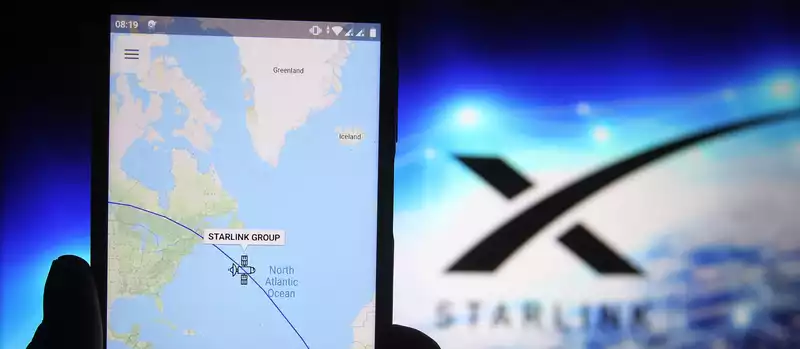Starlink, Elon Musk's satellite Internet company, has been experiencing slow speeds for the past two months, but performance has recently begun to pick up.
The results were published by PCMag in conjunction with speed-testing website Ookla. According to recent data, median download speeds on Starlink dropped from 80 Mbps to 50 Mbps between February and early March. The reason for the drop is not entirely clear, but speeds are beginning to normalize.
While the use of Ookla is not an exact science, and not all Starlink users check their Internet speeds with this service, it can still be an appropriate indicator of the situation Ookla told PCMag that it obtains speed test data from a number of users Ookla did not reveal to PCMag how many users it has obtained speed test data from, but "this sample size is well beyond the bright line of statistical significance," a company spokesperson said.
The graph below shows that in January, when it first launched, Starlink had solid performance, but then gradually slowed down, with performance normalizing by the end of March.
Note that we have reported users with download speeds of 200 Mbps or higher, but this is a more peripheral scenario and may not be indicative of overall performance. The Starlink megaconstellation is still in its infancy, with more satellites being launched each month, and PCMag contacted several Starlink users to get their opinions.
"The only consistent thing about Starlink's service is the inconsistent speed," Tabitha from Idaho emailed the publisher. She declined to give her last name. 'I did a speed test first thing this morning and got 213 Mbps downlink and 9.72 Mbps uplink. An hour later it was 94 Mbps down and 18 Mbps up; an hour after that it was 36 Mbps down/6.8 Mbps up.
Load may be the cause of the performance drop. As more people signed up for the service, the customer base grew and the system may have been overloaded. However, a bug in the system could be the cause.
SpaceX sent an email to users explaining the current situation.
"Recently, some beta users have experienced more frequent, albeit brief, outages, especially during evening hours. "This was caused by two main issues - preventive maintenance on various ground gateways and a bug in the network logic that caused some packet processing services to hang intermittently until reset. The good news is that a fix has been implemented and users should no longer see this particular problem"
.
After the firmware update, Tabitha's Internet speeds appear to have improved.
Other users have also reported connection discrepancies. Connections sometimes dropped from a few seconds to several hours.
Starlink's FAQ states, "During the beta period, we expect data speeds to change from 50Mb/s to 150Mb/s and latency from 20ms to 40ms in most locations over the next few months as we enhance the Starlink system. There will also be brief periods of no connectivity at all.
In layman's terms, some growing pains are expected.
To remedy this, Starlink plans to issue an update that will more quickly ping another satellite if the connection is dropped. Users should expect this update later this month.










Comments